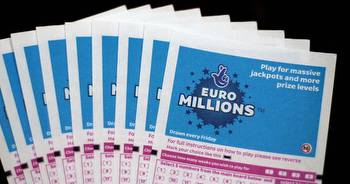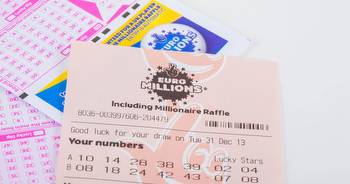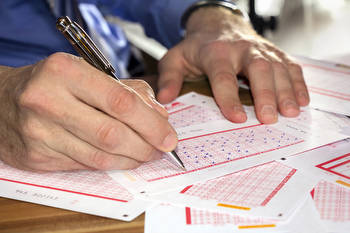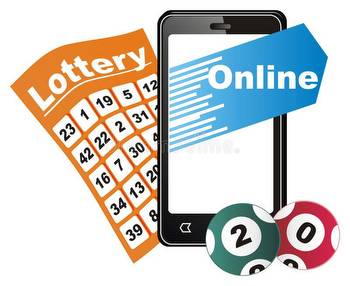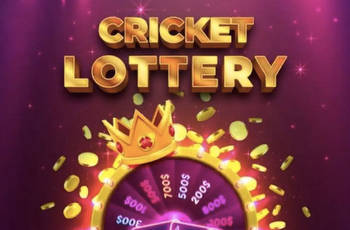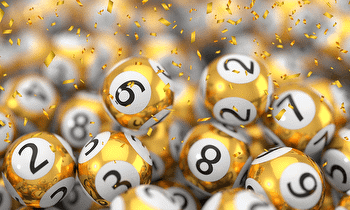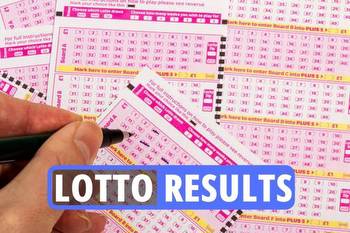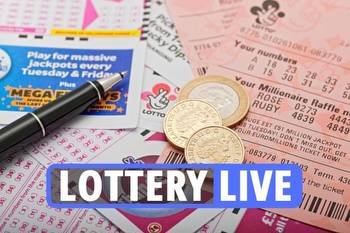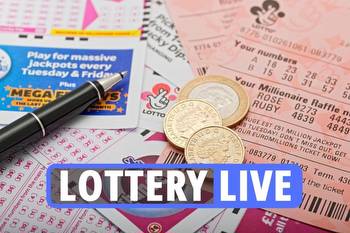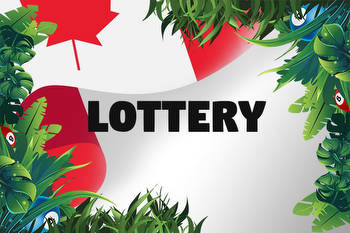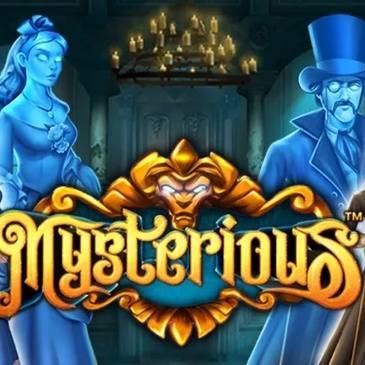Why do people play the lottery even though the odds are small?

It may seem obvious; everyone wants to win the jackpot! Who wouldn’t want to become an instant millionaire? Even if the odds are stacked against you, so long as you have a ticket, you have a chance. However, if we dig a bit deeper, there are other factors which drive people to play the lottery, including social and phycological issues.
Here are the top 10 reasons why people continue to play the lottery despite the low odds:
Along with scratchcards, lottery is the simplest form of gambling. Simply choose your numbers and hope for the best. In fact, with most lotteries you don’t even need to choose your own numbers as you can randomly select them by using a Quick Pick option.
Playing the lottery is not time consuming and you don’t even need to watch the draw.
Furthermore, lottery tickets are generally cheap. If you were to participate in a poker tournament, you’d be risking losing out much more money (at least in the short term).
Unlike other forms of gambling such as betting or card games, which require skill, with the lottery, it’s purely down to luck. Yes, you can analyse statistics and pick numbers based on previous draws but there’s no guaranteed way to improve your chances of winning.
If you play slot machines, roulette or bingo, you need to either physically visit a casino or a bingo hall. With the lottery, you can buy your ticket whilst doing your grocery shopping and forget about it until the draw is over.
Nowadays, it’s more convenient than ever as you can bet on the lottery results online with Lottoland.
The odds are too big to comprehend
According to research from Professor Robert Williams of the University of Lethbridge and Research Coordinator for the Alberta Gambling Research Institute, humans have not yet evolved a great understanding of very large numbers as historically there’s been no practical use for measuring numbers such as 20 million out of something or to count 40 million of something else. Therefore, it’s hard to envision or truly comprehend the figures when we talk about the huge odds of winning the lottery.
For example, the odds of winning a lottery at one in 50 million don’t seem to much different to the odds of winning at lottery with odds of one in five million, even though there really is a massive difference, in both cases the chances of winning are very unlikely.
On the other hand, if someone is given the choice between odds of say, one in three against one in 300, the difference seems much more obvious.
When it comes to the lottery, it’s always wise to see which lottery has the best odds rather than just blindly trying out the same lottery each week. Some lotteries such as the Irish Lottery, Polish Lotto or the Mini Lotto have significantly better odds of winning than the UK Lotto, EuroMillions or US lotteries like Powerball or Mega Millions for example.
Excitement/escapism
The pure excitement of playing the lottery is an important element as to why many people chose to play in the first place.
Many people enjoy watching the draw and getting the feeling of excitement as the balls appear. Others like to watch the draw with friends or family and feel part of something.
Whenever there’s a particularly large or record jackpot up for grabs, there’s always a buzz around town and people don’t want to feel “left out”.
The feeling of “what if” is a real lure. Just the dream of winning, the temporary fantasy of what to do with the cash, is a welcome distraction for the monotony of everyday life which many lottery players would use to justify their ticket purchase, especially as you don’t need to spend very much to get this feeling.
Social/financial issues
Many people see the lottery as way out of poverty or a solution to pay off debts.
This can be very dangerous as it can lead to a vicious cycle.
A 2011 report from the Journal of Gambling Studies titled Gambling on the Lottery: Sociodemographic Correlates Across the Lifespan, frequent lottery players are most likely to be poor and largely from minority groups.
Some critics “view lotteries as a tax that falls disproportionately on the poor and uninformed”.
Research shows that people are more likely to take risks when times are hard.
Of course, most people are aware that they’re unlikely to see any returns, but the potential payout would be so life-changing that the small cost seems justified.
It’s important to always stick to a budget and never spend more than you can afford on the lottery. You should never rely on the lottery to try and pay off debts or resolve any financial issues.
Casual players
Many lottery players are just casual players.
These people may not be too bothered about winning the lottery in the sense that they are not desperate for cash, they aren’t in debt or living in poverty.
They might play the lottery to give themselves a chance to win some extra money which they could put towards enjoying their retirement, taking care of any expenses, buying a new car or going on their dream holiday, but they aren’t relying on the lottery to sort themselves out or to change their lives.
They are happy to spend a little bit of cash now and then to give themselves a chance to win but are not gambling addicts nor do they make their life plans based on the belief that they will someday win the lottery.
The sunk-cost fallacy
A sunk cost is an expense that has already been incurred and cannot be recovered and thus should not be factored into any future decisions.
The sunk-cost fallacy occurs when you make a decision based on the time and resources you have already spent on something.
An example of this is the “Concorde fallacy” when the governments of the UK and France spent massively on the project of producing, launching, and maintaining supersonic jets despite huge losses, yet they considered their past expenses as a rationale for continuing the project, as opposed to "cutting their losses".
An everyday example would be when you refuse to hang up the phone when you’re on hold as you’ve already spent so much time on hold that you don’t want to have wasted time for nothing, as you’ll never get that time back.
When it comes to the lottery, people will keep on playing for years on end simply because they have already invested so much money over the years that they don’t want to “give up now”.
Sometimes lottery players keep playing due to a combination of the sunk-cost fallacy and the gambler’s fallacy.
The Gambler’s Fallacy
The Gambler’s Fallacy is the belief that an outcome is “due” to occur because it hasn’t occurred for some time or to “balance things out”.
The most famous example of this is an incident which took place at the Monte Carlo Casino in 1913 during a game of roulette when the ball landed on black 26 times in a row. Gamblers lost huge sums of money betting on red believing it had to “come up” in order to “balance out the average”.Many lottery players select their numbers based on “hot” and “cold” numbers – numbers which have recently “come up” and numbers which are “overdue”.
Some lottery players believe they can use rationale based on statistics to try and “predict” the winning numbers.
Other may believe that if they keep on playing the same numbers over and over again, they will eventually “come up” sometime. Of course, this does happen from time to time, as was the case with Robert Bailey from New York who won a whopping $343.8 million Powerball jackpot in 2018 after playing the same numbers for 25 years.
Sometimes, lottery players may have a near miss which encourages them to keep on playing as they feel their numbers are “hot”.
Near misses
The odds of winning any prize playing the EuroMillions are only 1 in 13. The odds of winning a minor prize on most lotteries are usually rather favourable, even if you only get your money back.
Winning a prize, regardless of how small it is, can encourage lottery players to keep on playing, especially if they have lost out on the jackpot by just a few numbers or have perhaps selected very close numbers. In particular, if they “predicted” those numbers using some sort of rationale based on previous draws.
A near-miss can provide players with useful feedback and encouragement in skill-based games which they can take learn from and take inspiration from to win in the future, but this is not the case with games of chance. Nevertheless, near misses can still activate the same reward systems in the brain as actual successes, as explained in the 2009 Neuron article titled Gambling Near-Misses Enhance Motivation to Gamble and Recruit Win-Related Brain Circuitry.
The availability heuristic
The availability heuristic relates to the tendency to use immediate examples that come to mind when evaluating a specific scenario, concept, or decision. Basically, it’s a mental shortcut to judge the likelihood of an event occurring based on how quickly we can think of examples of it.
Good examples of this would be a shark attack or a plane crash. Over the course of their lives, most people would have read about, or heard news of, numerous stories about shark attacks or plane crashes. These sensational stories capture people’s imagination. Therefore, we perceive these incidents to be more common than they really are.
Likewise, we constantly hear stories about lottery winners as people do win the lottery on a regular basis. The fact that we keep hearing about these wins, makes winning the lottery seem not so impossible.
What we fail to consider is that most people spend their lifetimes playing the lottery and never win a life-changing amount of money.
Cultural reasons
In some countries, playing the lottery is deeply rooted in local traditions. The best example of this is the Spanish Christmas Lottery El Gordo de Navidad, which was first held in 1812 and is the world’s second-longest continuously running lottery.
El Gordo is a huge Christmas tradition, with almost every other person in the country participating.
This lottery works more like a raffle, with tickets of five-digit numbers from 00000 to 99999 and 100,000 unique ticket numbers. Each ticket number is printed multiple times on 170 ‘séries’ of 100,000 tickets. The tickets themselves are sold as 10 identical sub-tickets which can be broken down to a ‘décimo’ (one-tenth) and even into a smaller share called a ‘participación’. The way this lottery is played, encourages people to share tickets, play as syndicates and makes the lottery accessible for all.
The lottery’s official slogan is ‘el mayor premio es compartirlo’ (‘the greatest prize is to share it’). In the run-in to Christmas, highly anticipated, big-budget, adverts produced by renowned filmmakers are shown on Spanish television to build-up the lottery hype. On the day of the draw, bars and cafes are packed with people watching the live draw, which is full of history and tradition and can last up to three hours.
In one such advert, a group of work colleagues all chip in to buy a ticket and end up winning the jackpot but one of the colleagues if left out, in the end it is revealed that someone had bought a share on his behalf, and they all celebrate together.
No wonder no one in Spain wants to be left out from taking part in El Gordo!
Why bet on the lottery online?
As we have seen, there are various reasons as to why people play the lottery but why would anyone bet on the lottery online rather than buy a physical ticket?
The most obvious reason is the convenience factor. It’s simply easier and quicker to get on your phone, or any device with an internet connection, and buy your lottery tickets online.
However, this is not the main factor. As explained previously, it is wise to choose lotteries with more favourable odds, such as the Irish Lotto, which has jackpot odds of 1 in 10,737,573 as opposed to the UK National Lotttery at 1 in 45,057,474 or the EuroMillions at 1 in 139,838,160. Lottoland gives punters the chance to bet on lotteries from around the world which can offer them more favourable odds, or alternatively, much larger jackpots such as those offered by the US lotteries Powerball and MegaMillions.
Whether you buy a physical ticket or bet on the lottery online, it’s important to be in control of your gambling and be gamble aware. People do win the lottery all the time, at the end of the day, someone has to win but you should be realistic about your chances and never rely on the lottery or see the lottery as an answer to your financial problems. Although, this doesn’t mean you can’t dream…








